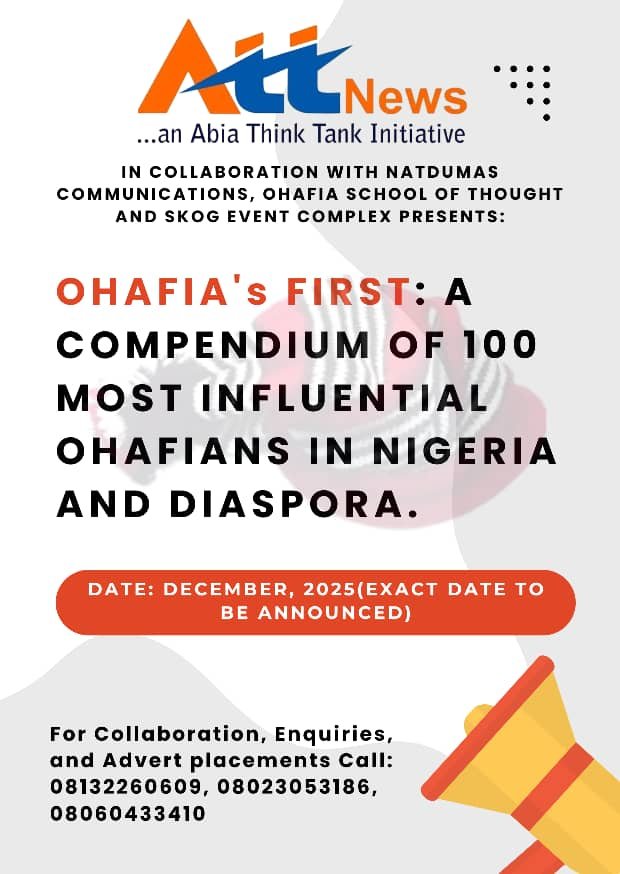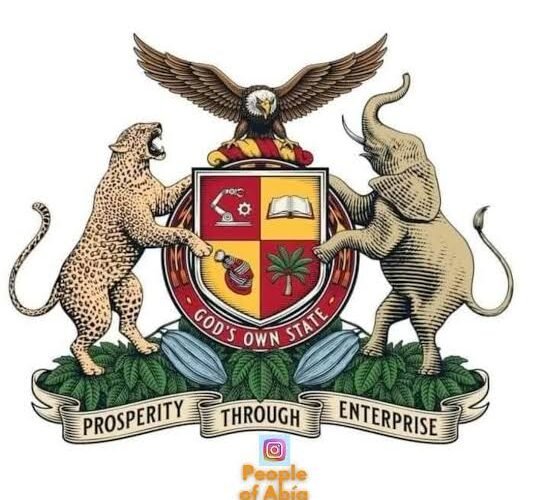The Politics of Abia State: Demystifying 2027 – A Gramscian Analysis
- Historical Context: The Roots of Political Polarization
Abia State’s current political polarization stems from the Peoples Democratic Party’s (PDP) 24-year hegemony (1999-2023), characterized by infrastructural neglect, chronic unpaid salaries, and pension arrears, creating a profound legitimacy crisis in Marxist terms. The 2023 electoral revolution saw Alex Otti’s victory on the Labour Party (LP) platform shatter this dominance, driven by Otti wave, mass frustration with perceived kleptocratic governance described as “free-for-all looting,” and Otti’s credibility as a banker with a strong anti-corruption message. Crucially, the “Abia Charter of Equity” zoning principle, designating Abia North for the 2023 governorship, significantly contributed to Otti’s victory by channeling regional expectations. - The Gramscian “War of Position”: Otti Camp vs. Anti-Otti Forces
A. Otti’s Counter-Hegemony Project
Governor Alex Otti’s strategy constitutes a Gramscian counter-hegemonic project. He employs infrastructure development—such as the reconstruction of Port Harcourt Road in Aba, the 6-lane Umuahia road, and 200 primary health centers—as an ideological weapon, generating material legitimacy. Institutional reforms bolster this: regular salary payments by the 28th of every month and cleared pension arrears address historical grievances. Significantly increasing traditional rulers’ stipends from ₦15,000 to ₦250,000 monthly strategically co-opts cultural institutions, while allocating 25% of the budget to education with free primary/JSS schooling invests in future consent. A key tactical maneuver was Otti’s authorization for loyalists to join other parties for the November 2023 local elections, acknowledging LP’s grassroots weakness and resulting in LP’s total defeat (0/17 LGAs)—a calculated retreat in the war of position.
B. Anti-Otti Forces: Fragmented Opposition
The opposition to Otti remains fragmented. The Deputy Speaker, Ben Kalu’s “Renewed Hope Partners,” aggressively builds structures for President Tinubu’s 2027 reelection while hoping for a state capture. Kalu has once publicly declared Otti a “one-term governor,” leveraging federal connections like the South East Development Commission, though internal strife with Senator Orji Uzor Kalu and Minister Nkeiruka Onyejeocha weakens cohesion. The PDP, led by 2023 candidate Okey Ahiwe, maintains ambition but is severely weakened by defections, litigation, and its association with past failures and “kleptocracy” accusations. Emerging third forces include the Zenith Labour Party (ZLP), which won 15/17 LGAs in the 2023 council polls, positioning as Otti’s potential alternative vehicle, and the African Democratic Congress (ADC), launching a June 2025 coalition as an anti-APC “rescue mission.”


- Critical Nodes of Contention (2025-2027)
Several critical issues define the pre-2027 battlefield. LP faces an existential crisis due to the national factional war between Julius Abure and forces aligned with Otti; this conflict will be resolved. With some forces allegedly manipulating the crisis to “collapse LP into APC.” The zoning dilemma is paramount: Abia North expects to complete a perceived 8-year tenure (Otti’s first term plus re-election), yet Otti’s Isiala Ngwa (Abia Central) origin enhances this narrative. Otti’s steadfast refusal to engage in “stomach infrastructure” or “share public funds” alienates the political class accustomed to patronage politics, creating internal friction. Furthermore, lingering resentment among pensioners over the controversial Memorandum of Agreement (MoA) on gratuity payments remains an unresolved social grievance. - Gramscian Analysis: Hegemony in Action
Abia’s struggle exemplifies Gramscian concepts. Otti actively manufactures consent primarily through infrastructural visibility—roads, hospitals—to build popular legitimacy, utilizing persuasion within civil society rather than relying solely on state coercion. Conversely, the anti-Otti forces exhibit counter-hegemonic weakness, lacking ideological coherence; the some push relies heavily on federal patronage, exemplified by Ben Kalu’s Peace in South East Project (PISE-P), rather than moral leadership or alternative governance vision. Otti’s non-confrontational style towards party structures (“remain in LP but join any party”) shows wisdom, tact and akin to a passive revolution, where superficial change ultimately maintains existing elite power structures. As Gramsci noted, the “war of position” culminates when the masses decide; in 2027, Abians will confirm the Otti’s material concessions (consistent salaries, tangible projects) outweigh the enduring pull of clientelist demands. - 2027 Scenarios: Revolution or Restoration?
The 2027 election presents distinct pathways. An Otti victory is both successfully reconciling the Labour Party and reclaiming it from the Abure faction through legal means, and or utilizing a third-party vehicle like a ZLP/ADC coalition, replicating the strategy seen in the 2023 council elections. An opposition takeover appears possible only under specific conditions: a significant erosion of Otti’s performance legitimacy due to project delays or payment defaults, which will never happen as he has steadied this course and it’s on auto pilot. I acknowledge DSP Ben Kalu’s efforts helping a complete collapse of the PDP remnant into the APC. A significant wildcard remains potential Igbo presidency negotiations within national politics, which could dramatically reshape the South East political calculus, positioning figures like Otti as potential kingmakers.
Conclusion: The Unfolding War of Position
Abia’s politics vividly illustrate Gramsci’s insight that “the old is dying and the new must be born.” Governor Otti represents an ongoing counter-hegemonic project challenging the post-1999 kleptocratic governance model, while the Anti-Otti forces fundamentally embody a desire for restoration. The 2027 contest will critically celebrate Abia’s electorate as they prioritize demonstrable material transformation over traditional ethno-regional zoning imperatives or the allure of federal patronage. As Gramsci observed, this protracted war “requires unprecedented concentration of hegemony.” The battle lines are drawn between Otti’s strategy of infrastructural visibility and wage consistency versus opposition connections and the PDP’s residual godfather networks. Ultimately, the manufacture of consent through tangible governance outcomes—not rigging threats—will further showcase Abia as she transitions into a model for post-clientelist politics in Nigeria.
Dr Chukwuemeka Ifegwu Eke writes the University of Abuja Nigeria







